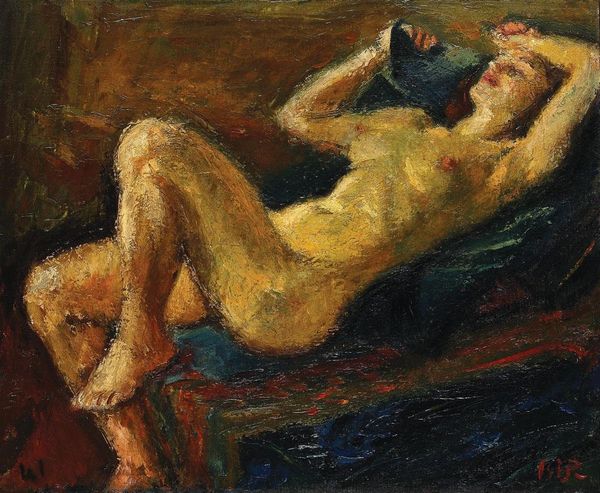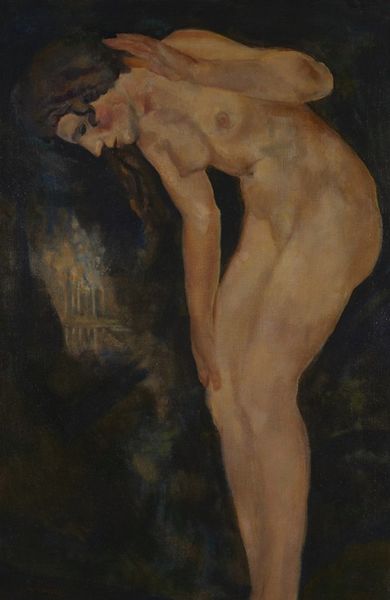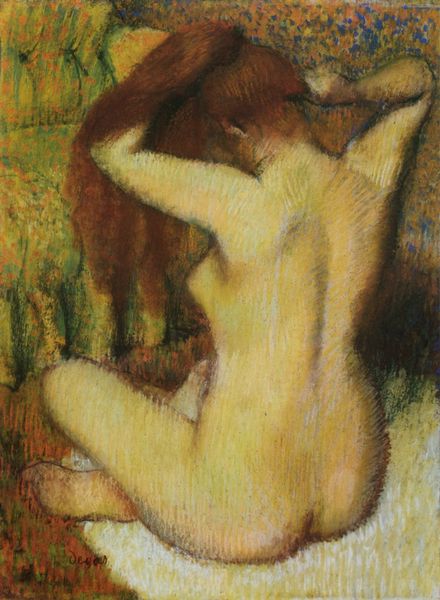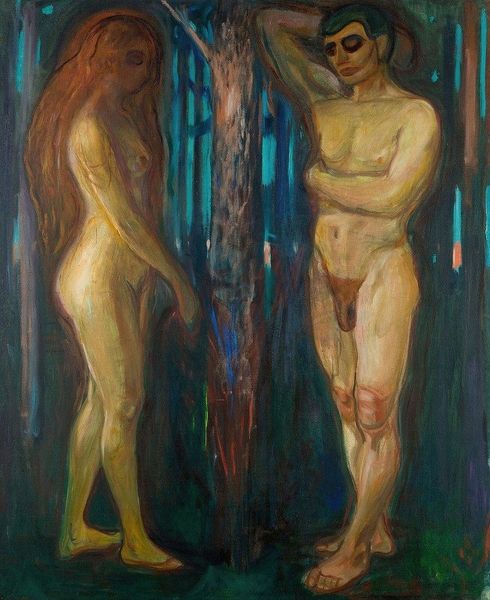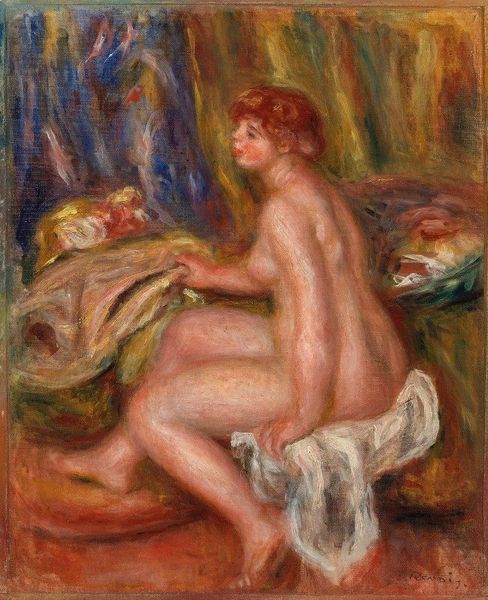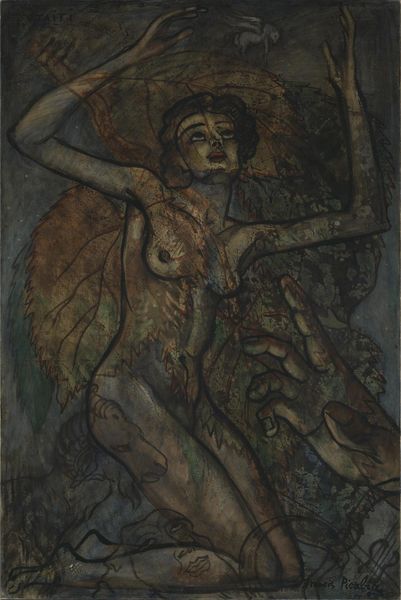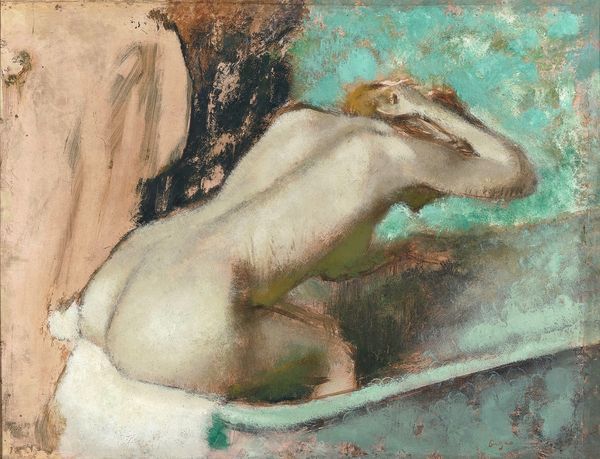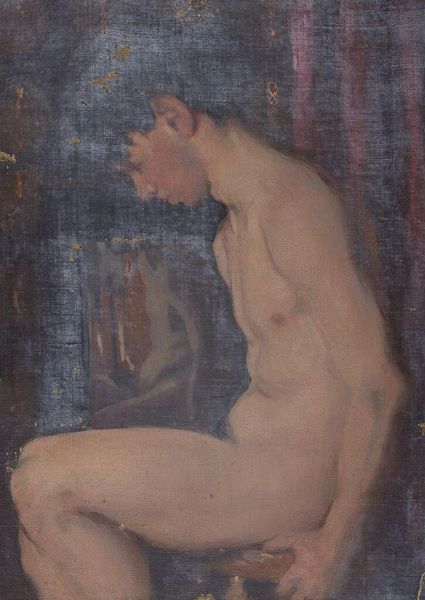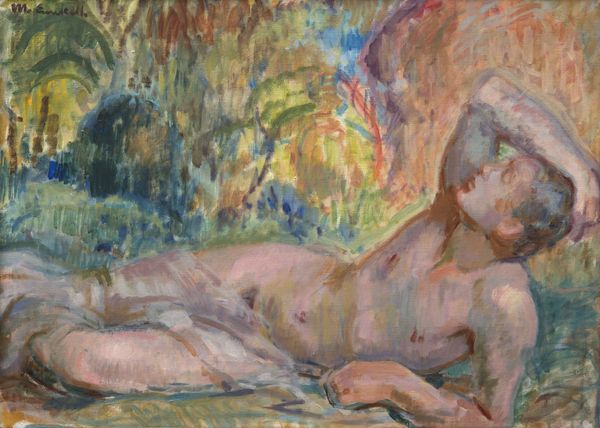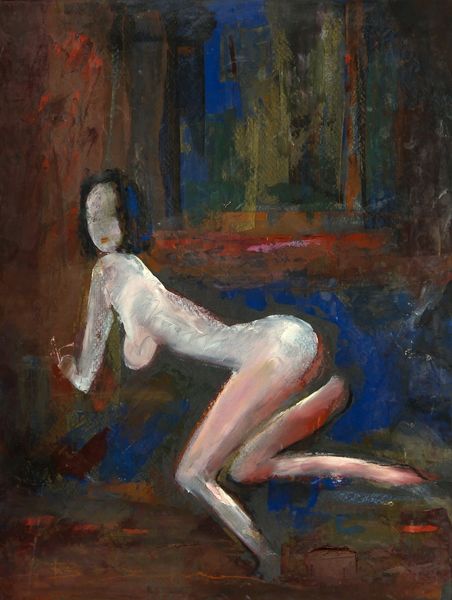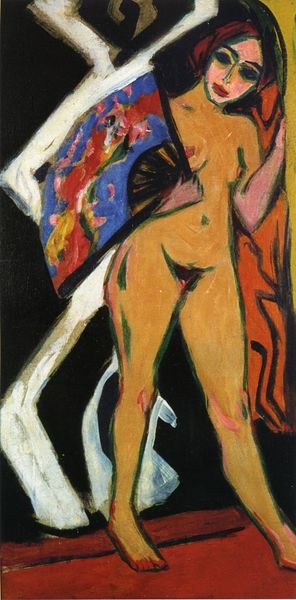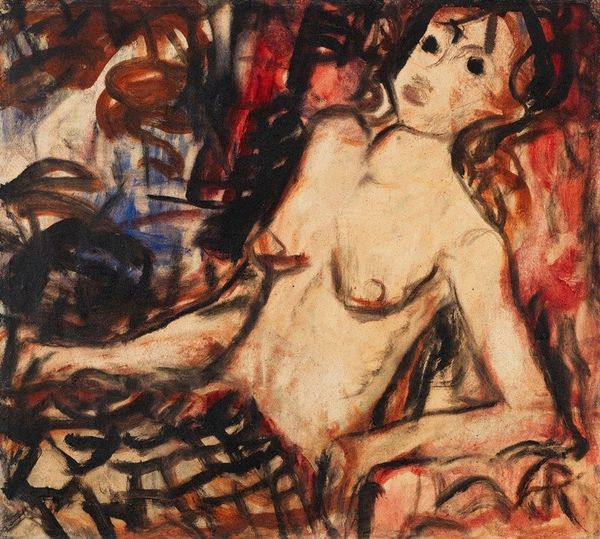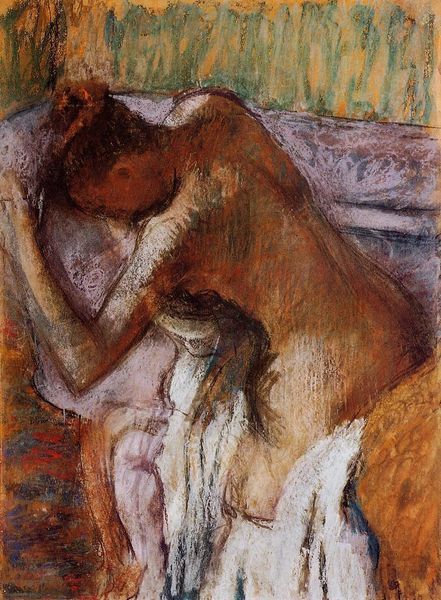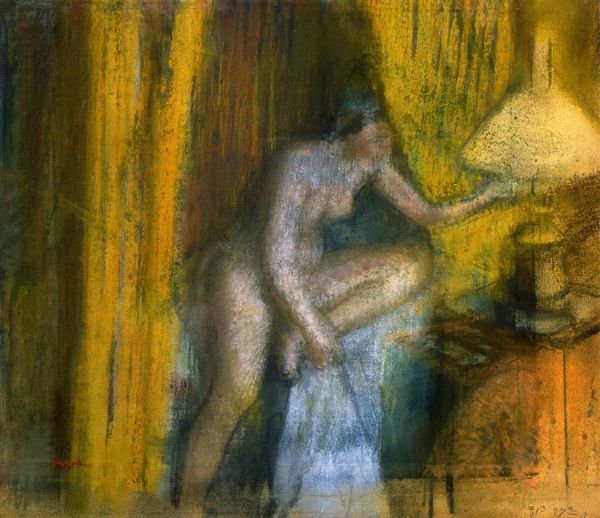
Copyright: Public Domain: Artvee
Franz von Stuck painted Judith und Holofernes at a time of shifting views on gender and power. Von Stuck was part of the Symbolist movement, which was interested in dreams, the exotic, and the macabre. This painting presents a scene from the Old Testament. Judith, a Jewish widow, seduces and then assassinates the Assyrian general Holofernes to save her city. Von Stuck here depicts Judith as a femme fatale. Her nudity and sidelong glance evoke a sense of danger and allure. The sword she holds glints faintly against her skin. Meanwhile, Holofernes lies nearly invisible in the darkened background. The themes of female strength and resistance are present in the story. The painting complicates these themes, and invites us to consider how power, gender, and sexuality intersect in complex ways. How might Judith’s story resonate with contemporary discussions about women's agency and autonomy?
Comments
No comments
Be the first to comment and join the conversation on the ultimate creative platform.
